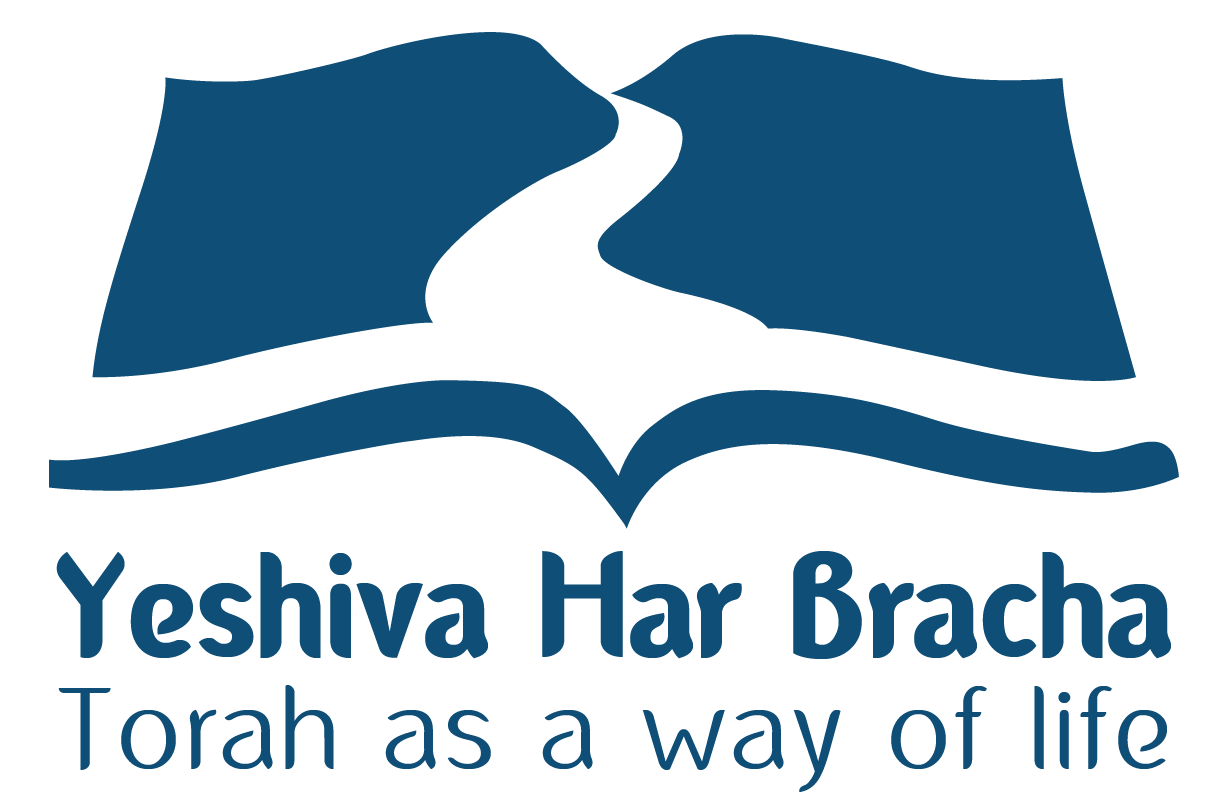The use of divination, tarot cards, or coffee reading to predict the future, or uncover hidden truths, is prohibited by the Torah * One should not attempt to foresee the future using magic or trickery; instead, we must confront challenges through the natural means provided by God * Consulting true prophets for guidance about the future is permitted, as their words are truthful, and intended to guide us along the path of Torah * Reservists and active-duty soldiers should recite the Birkat HaGomel blessing after every period of combat service
“Peninei Halakha” Daily Study
On Thursday, the 20th of Cheshvan, as part of the “Peninei Halakha” daily study program, which approximately 6,000 people follow by studying two sections from “Peninei Halakha” books each day, a new book, Brachot, will be started. Initially, I thought this learning schedule was too limited, as it would be more fitting to study halachot at a faster pace—perhaps ten sections a day, to cover the entire series in a year. However, I realized that even studying two sections daily is meaningful, as small increments add up to significant accomplishments. By year’s end, with God’s help, we will complete the volume on Brachot, and the two volumes on the laws of Shabbat. A notable benefit of focusing on just two sections a day is the opportunity to reflect on them throughout the day, making the learning more impactful. For example, by studying Brachot, one becomes more mindful of each blessing, imbuing life with deeper meaning.
Birkat HaGomel for Soldiers
Q: Should our brave soldiers, defending our people and land, recite Birkat HaGomel each time they return home for a short leave?
A: The general rule for Birkat HaGomel is that it is recited only after the danger has passed. This applies to someone who travels in a caravan for several months, or sails on a months-long voyage, which historically were fraught with danger. After completing the journey, Birkat HaGomel has to be recited.
In practice, a reservist should recite Birkat HaGomel at the end of each reserve duty period, even if they know they will be called again in a month. The blessing should be recited after each completed period. Similarly, active-duty soldiers should recite Birkat HaGomel after completing each period of frontline service. For instance, someone deployed in Lebanon for an indeterminate period of weeks or months, should recite the blessing after that combat period ends. Even a week-long leave (regila) or training session could mark a break between combat periods, warranting the recitation of Birkat HaGomel.
Additionally, even though operations in Judea and Samaria are currently considered less dangerous, Birkat HaGomel should still be recited after each service period in those areas (see, Peninei Halakha: Brachot 16:9).
May God grant our soldiers the strength to vanquish all our enemies, protect them from harm, and bring them home safely. In the merit of the great mitzvah they fulfill—equal to all other mitzvot—they, and their families, will be blessed with abundant goodness.
Divination Practices
Q: Is it permissible to use divination, tarot cards, or coffee reading to predict the future, or uncover hidden truths?
A: These practices are forbidden by the Torah. Before explaining the prohibition, let us briefly describe these methods:
Divination (Goralot)
Divination involves casting lots, such as rolling dice, to predict the future. Some forms answer simple yes-or-no questions, while others are more complex, based on astrology. Practitioners interpret a person’s fate based on their birth date, and cast lots to determine personality traits, future events, and potential challenges. All forms of divination are prohibited by the Torah.
Tarot Card Reading
Similar to divination, tarot card reading involves shuffling a deck of cards, laying them face down, and drawing cards at random. The cards are then interpreted to predict the future or offer advice, based on the belief that random selection aligns with the questioner’s fate, and inner world. Predicting the future using tarot cards is also forbidden.
Coffee Reading
Coffee reading involves interpreting the residue left by a beverage of coffee. Proponents believe that when someone drinks, their spirit interacts with the liquid, and their subconscious knowledge of the future is transferred to the residue. The patterns left in the cup are said to reveal these insights. Predicting the future through this method is likewise forbidden.
The Prohibition of Divination
The Torah explicitly forbids these practices under the commandment “You shall be wholehearted with the Lord your God” (Devarim 18:13; Shulchan Aruch Yoreh De’ah 179:1). This mitzvah teaches us to trust that all events occur under divine providence, guiding us toward truth and goodness. Even when hardships arise, they are intended to prompt personal growth. Seeking to predict the future through magical means violates this commandment, and distracts from the natural methods God has given us to address life’s challenges. These natural efforts lead to personal improvement.
However, consulting true prophets is permitted, because their words are truthful, and intended to guide us according to Torah principles.
The Prohibition of “Kossem” and “Menachesh” (Soothsaying and Divination)
Additionally, there is room to say these practices are also forbidden due to the Torah’s prohibition against “kossem” (soothsaying) and “menachesh” (divination), as it is written:
“There shall not be found among you… one who practices divination, soothsaying, or witchcraft… For whoever does these things is an abomination to the Lord… You shall be wholehearted with the Lord, your God” (Deuteronomy 18:10-13).
Definition of “Kossem” (Soothsayer)
A kossem is someone who performs various actions to predict the future. Examples include:
- Repeatedly striking a stick while uttering strange sounds.
- Stirring sand to form patterns.
- Handling stones or sand.
- Long contemplation of a mirror or a flame in a lamp.
- Bowing to the ground in strange movements.
All these actions aim to achieve a meditative or hypnotic state to connect with “supernatural” forces, enabling them to predict the future, or reveal hidden matters (see Rambam, Avodah Zarah 11:6; Sefer HaChinuch 510).
Definition of “Menachesh” (Diviner)
The term menachesh stems from the idea of “hastening” (Ramban). Naturally, a person does not know what will happen in the future, but a diviner seeks to hasten knowledge of future events through current occurrences, even if there is no logical causal connection. For instance:
- Someone sees a piece of bread fall from their hand, or their walking stick drop, and they interpret this as a sign to abandon plans for the day (Sanhedrin 65b).
Similarly, those who cast lots, read tarot cards, or interpret coffee grounds use certain actions like a kossem to predict the future. Based on random outcomes from lots, cards, or coffee shapes, they predict events or offer guidance, which falls under the prohibition of menachesh.
The Lenient Halachic View
Among those inclined to the worlds of mysticism and Kabbalah, some Torah scholars have used casting lots. Their rationale is as follows:
The prohibition of lots arises when one connects with impure forces to obtain worldly benefits. However, casting lots in the context of repentance, reverence for Heaven, and prayer to God—seeking Divine guidance for future actions—does not violate the prohibitions of kossem or menachesh.
Even so, they agree that when lots are cast by individuals lacking reverence for Heaven, or performed without repentance and prayer, impure forces become involved, rendering the practice forbidden (see Rema and Levush, Yoreh De’ah 179:14).
Regarding the commandment to be “wholehearted with God” (tamim tihyeh), these lenient authorities argue that predicting the future with absolute certainty is prohibited. Since they believe in repentance and prayer to alter the future, they do not make definitive predictions, thus avoiding a violation of tamim tihyeh.
A similar claim could be made by those reading coffee grounds, or using tarot cards: as long as they act with reverence for Heaven, accompanied by prayer and inspiring their questioners to repentance, they believe no prohibition is transgressed.
Did our Sages of Old Use Lots?
According to lenient opinions, some great figures of earlier generations utilized lots. This argument is based on Jewish books of lots and mystical remedies written in Hebrew, attributed to giants of Jewish scholarship such as Rav Saadia Gaon, Rav Tzemach Gaon, Ibn Ezra, and others.
However, the majority of halakhic authorities reject this claim. Since the vast majority of our Sages explicitly stated that using lots is prohibited, it is unlikely that these practices originated from great Jewish scholars. Additionally, many lots described in Jewish mystical texts were previously recorded in gentile Greek, Roman, and Muslim texts, and rooted in pagan and magical traditions.
The lenient authorities counter that ignorant copyists inadvertently included lots and mystical remedies from idol worshipers and magicians in ancient Jewish books. They claim to have refined these works, only using lots rooted in authentic Jewish teachings.
Practical Halakha
Even if we accept the lenient position that one acting solely for the sake of Heaven does not violate the prohibition of kossem or menachesh, the practice remains prohibited due to the mitzvah of tamim tihyeh (wholeheartedness with God). This is as codified in the Shulchan Aruch regarding casting lots (Yoreh De’ah 179:1).
The lenient argument that guidance derived from lots, or similar methods, is akin to advice from a rabbi or psychologist, is flawed. A rabbi or psychologist offers advice after deep acquaintance with the individual, basing their guidance on logic. This allows the recipient to critically evaluate the advice, and ultimately make their own decisions. Such a process adheres to tamim tihyeh, as it utilizes the natural faculties God provided.
In contrast, advice derived from supernatural or obscure methods is challenging for a person to rationally dismiss, even if flawed. This can lead to misguided life decisions, such as pursuing an unsuitable career based on a mistaken perception of talent, or deciding to marry (or not marry) someone based on flawed advice.
Conclusion
Therefore, it is prohibited to predict the future or offer guidance for future actions using lots, tarot cards, or coffee ground readings.
This article appears in the ‘Besheva’ newspaper and was translated from Hebrew.








